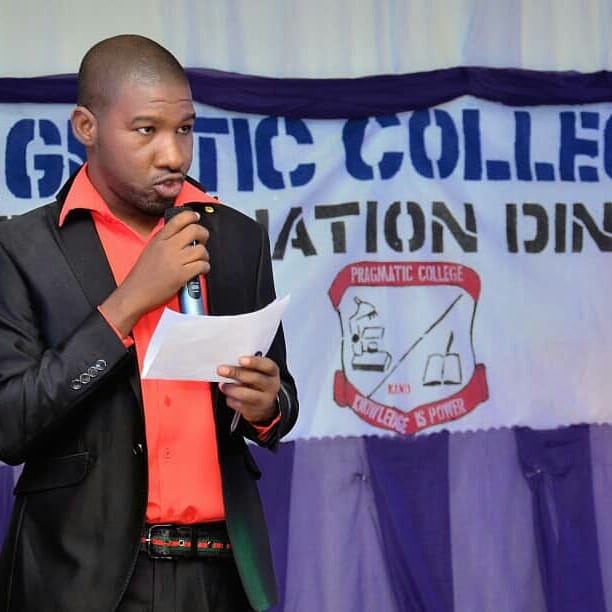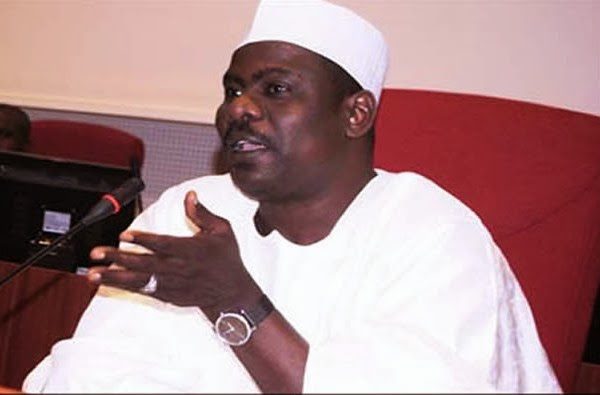Democracy & Governance
Where did corruption in governance emerged from -By Sani Muhammad Uzairu

After the dismantling of the Berlin Blockade of 1989 and the fall of the Soviet Union of 1991, in which the Eastern and the Western blocs stopped confronting each other based on political ideological differences, and left the world dangling on the brink of another world war for more than four decades, Africa experienced a hopeful political trend. Unfortunately, this hope was short-lived due to entrenched political ties of most African countries with the West. Politics became encrusted in the love for money and not patrimony; retarding the development of African countries including Nigeria. With the influence of money, multiparty democracy has gradually degenerated to a “game of thrones” where the rich and not the true patriots make the kings.
From the very beginning, there were concerns on the trend, and that it could become the biggest threat to Africa’s democracy because; it is intended to install enemies of the state on the helm of the country’s affairs and reshape the good destinies of nations in Africa into caricatures of what heaven had had as original designs.
An alternative prediction of such a nation’s future cannot be possible because failure is evident from the word go. Once corruption becomes entrenched in a nation, it leaves no room for true democracy; no room for true justice and no room for true freedom; and no room for effective policy implementation. It creates an alternative to truth and presents fakery as standards and such standards would only yield false fruits; flashing economies that would seem prosperous on the surface but hold putrid foundations.
Leaders who navigate their ways to power through the mechanism of money politics are rarely connected to the spirit of altruism nor are they imbibed with the selflessness that can ride the soul of a nation towards real development because they are not grounded in the principles of living for the sake of others or the greater good. The reverse is true; it is mostly about self-aggrandizement and the quest to be wealthy. With such shallow motivations towards leadership, a leader may not be able to deliver to the full capacity of his potential even if he is intellectually gifted.
Power can easily become a place to settle private scores with his or her enemies; it is easy to deepen ethnocentric sentiments. In some countries leaders with these types of backgrounds have literally metamorphosed to becoming demi-gods; a nature that is very hard to suppress in the circles of political powers. Some African leaders became the horror that terrorized or subjugated their citizens as has been evident in Nigeria’s fourth republic. Some defile state institututions of integrity to perpetuate evil and profit from it.
It is no mistake to suppose that, money in the hands of a corrupt mind is like a ballistic missile in the hands of Iran, and political power in the cycles of villains is literally, a finger on the trigger of a dangerous bomb.
The most dangerous consequence of money-politics is its capacity to perpetrate corrupt tendencies for a long period of time due to the fact that, by itself, it’s a vice. It can be defined as the inducement of the vulnerable into a political stance, a path or an act that they may have never succumbed to without money; this trend risk eating-up the fabric of political sanity in and the morality of a nation.
To further pontificate, It’s important at this juncture to draw our focus to these facts and be mindful of how we intend to address the issues confronting us as a people; the decisions we make each and every day, and the leadership style we adopt will reflect the change we aspire to have. No nation develops only through policy documents.
The present leaders must be aware that, the young may not only copy what they see but may develop a capacity to do worse except there is a divine intervention for the new paradigm shift. It is important for leaders to eschew individualism and unite around its core values for national development and spirit of patriotism.
The point Nigeria must have left the rail of commonsensical political pursuit towards progress was surely after the transition period; during the dawn of the new millennium – when multiparty dispensation, unfortunately, gave room for different ideologies to take the helm of the affairs of the state.
In spite of the gains of multiparty democracy, the eight years after a new political mandate came to an end in the fourth republic, Nigeria’s political climate was completely distorted in every regard; affecting not only the ordinary citizens but even extending its effect onto the nation at large. That era gave birth to complex socio-political and economic issues. It changed the face of the game, the game plan and virtually reversed the clock. Money became the platform upon which some politicians could move their candidacy into the heart of the electorates and not necessarily their principles, political profiles, and manifestos. Even during election periods; at times in the election halls, money exchange hands looking for souls to buy. It is unfortunate, except people of true integrity and good leadership consciousness rise to right this political incorrectness, corruption will leave a dirty scare on Nigeria’s political arena in the nearest future and no amount of policy framework can save us from developmental retrogression.




















